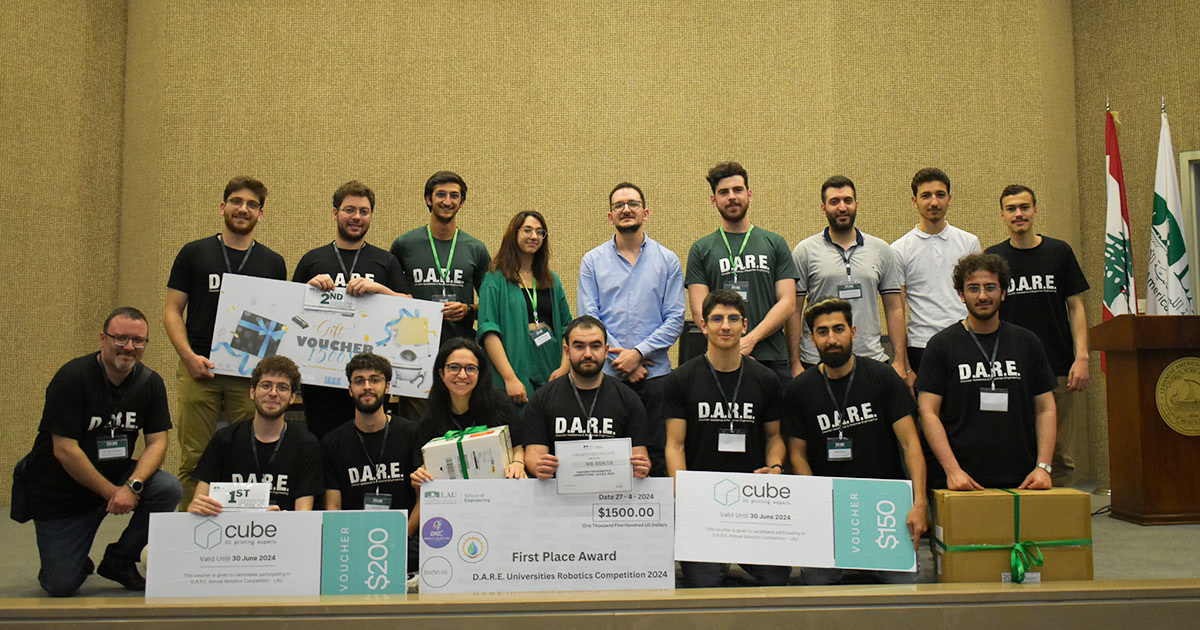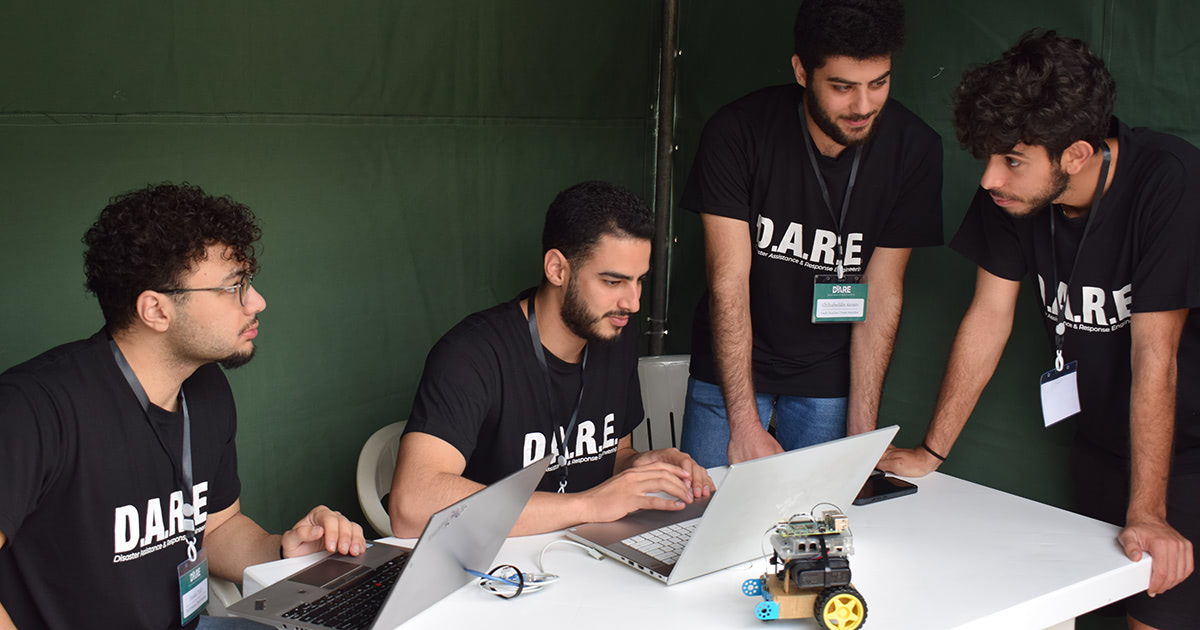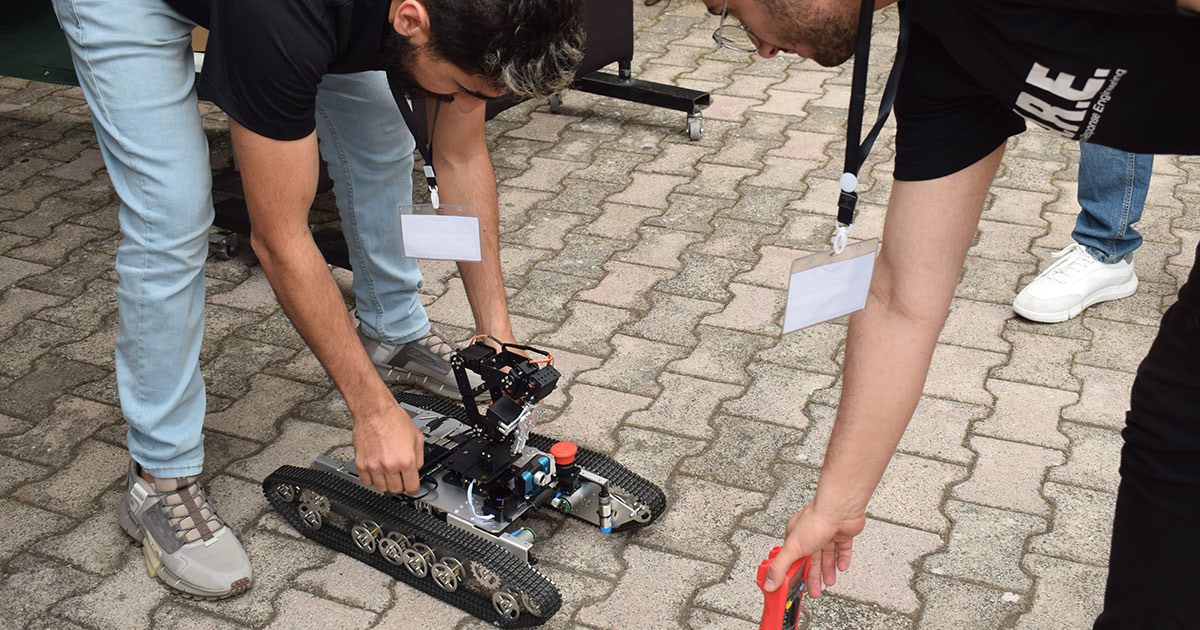Advancing Disaster Management with Robotics
Interuniversity students team up to compete at the first Universities Robotics Competition organized by LAU’s IEEE Robotics Club in collaboration with the School of Engineering.
As part of the university’s efforts to foster innovation and a collaborative spirit among sister institutions, the IEEE Robotics Club in partnership with the School of Engineering inaugurated the first Universities Robotics Competition in an award ceremony held on April 27, 2024, at the Byblos campus.
Launched under the Disaster Assistance and Response Engineering (DARE) theme, 14 student groups from six universities across Lebanon, including LAU, worked on building advanced robots that could navigate and perform critical tasks in disaster-stricken areas, both natural and manmade.
The competition is set to become a yearly tradition to “showcase the innovative spirit and technical skills of students across Lebanon in robotics,” said Dr. Noel Maalouf, assistant professor at the school.
The teams worked for two months on designing robotic innovations for obstacle avoidance, search and rescue operations, environmental perception and communication in challenging conditions.
Their projects were then pitched and demonstrated to eight judges, representing eight of the 10 event sponsors: ElectroSLAB, Beirut ElectroCity, Technica, Innovating Green Technology, Supportful, Cube 3D Printing Experts, Robot Pi Shop, Dynamic Solutions, EDTech Hub and Berytech. Evaluation criteria included business viability, technical design, innovation, modularity, and safety and compliance.
WE RESCUE team from Beirut Arab University won the first prize for their rescue and recovery robot, receiving $1,500 in cash, a $200 voucher for 3D printing and a high-end robotic arm. According to team member Hanin Itani, the robot was designed to operate in disaster scenarios such as earthquakes and structural collapses, generating its own wireless connection to function without internet access.
LAU’s own team, GRID, received the runner-up prize of a $1,500 voucher for electronics for their design, which streamlines a seamless operational flow between drones and rovers that allows localizing the survivors of disasters in a time-efficient manner.
“We chose this project to put our engineering abilities to the test for an honorable cause,” said Ralph Sakhat, fifth-year mechatronics student and team member.
The third place went to Rafic Hariri University’s team, Brainiacs, who received a 3D printer with a $150 voucher for 3D printing.
The event, said Dr. Maalouf, “not only highlighted the potential of robotics in saving lives but also inspired future advancements in disaster management and response.”


